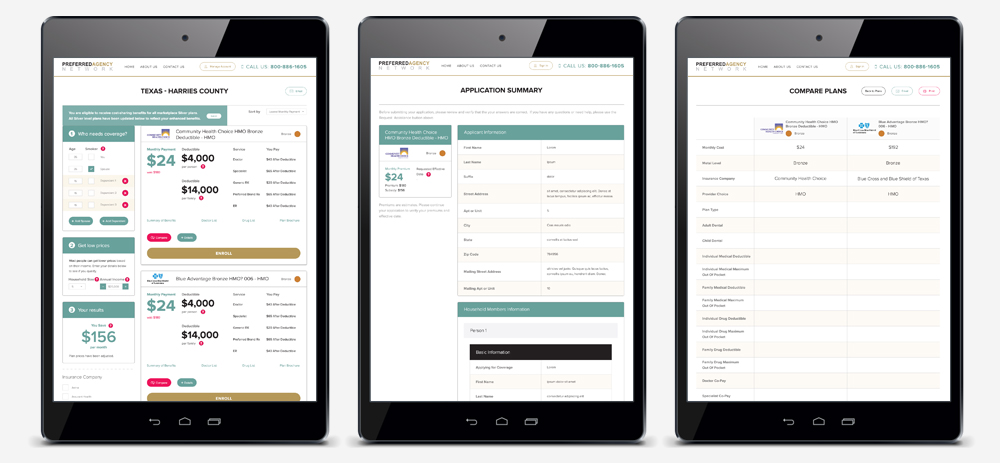Recognizing the growing role that technology plays in all of our businesses today, and the emerging digital trends of industry leaders, we are continuing our blog series on custom software development and its contribution to an organization’s digital strategy and, ultimately, the bottom line.
If you missed the first blog in the series, How App Development Increases Sales, it is a valuable read if you want to learn more about the role that technology plays in revenue generation. In this blog, we will be focusing on the second of the three core tenets of custom apps: how custom software development can significantly reduce your operating costs.
We mentioned in the previous blog that the greatest advantage of custom software development will always be its tight integration with your unique business goals, processes, customers, and employees. More often than not, this advantage comes in the form of labor cost savings.
Reducing Labor Costs
Labor costs represent a significant portion of a business’ operating expense. For many industries, payroll costs are by far the single largest line item on the income statement, and as a result, companies must carefully manage employee productivity and hiring decisions. According to the Bureau of Labor Statistics in the U.S. Department of Labor, total employer compensation costs for private industry workers averaged $31.65 per hour worked in March 2015.
For the past several decades, companies have turned to software to improve employee productivity and automate labor-intensive tasks. However, in many cases, off-the-shelf software is incompatible with a company’s business processes, or there are holes in one or more processes that are not supported by the software and require expensive manual labor investment to manage the operations. Let’s look at some common examples:
1. Seamless Data Management: One of the most common business cases for custom software development is the need to replace the labor-intensive and error prone task of data entry with an automated, integrated data management solution. Most companies use several software applications to help run their business, and more often than not, there are integration gaps in the software apps which require data to be entered (and re-entered) manually in order to produce and end-to-end management solution. The problem with manual data entry is that it is slow, expensive, and prone to human error, requiring a significant labor investment. A better solution is either 1) replacing the multiple systems with a single custom application that operates on a central database or 2) integrating the existing systems with a set of smaller applications that eliminate the data entry and re-entry tasks.
2. Field Employee Operations: Employees who work away from the office headquarters can benefit tremendously from mobile applications. Since most field employees do not have access to traditional computers, mobile apps that integrate with the desktop and web applications used by operations managers and other on-location employees can serve as a highly effective communication channel and management tool. In addition to increasing field employee productivity, developing a custom application can improve the productivity of office employees by reducing the time required to support and manage employees in the field.
3. Inventory & Supply Chain Management: For many small businesses, effectively managing materials sourcing, product inventory, and the delivery process requires a lot of manual labor and often is the greatest barrier to growth. What materials are needed to fulfill current demand? How can we track inventory across the supply chain? How can we increase production capacity with the current labor force? These kinds of questions require answers in order to build a scalable business, especially for companies with innovative business models and tailored processes, where traditional, off-the-shelf software is not effective. In these situations, custom software applications, including mobile applications with barcode scanning technology, can precisely automate once-manual tasks, increase capacity without increasing labor costs, and provide a strong foundation for scaling the business.
4. Services Fulfillment Management: Professional services are, by definition, labor-intensive. Efficient labor management and a focus on productivity will boost services companies to market leadership positions by enabling them to deliver consistent quality at lower prices than the competition. Custom software that automates the business management tasks associated with service order fulfillment – from new order creation to client billing – will improve productivity and generate labor cost savings that can be invested elsewhere or added to the bottom line.
5. Billing & Financial Management: Customer billing and the larger tasks of financial management can consume a lot of employee time. Similar to data entry, these tasks are generally repetitive and labor-intensive. In addition to automating sales transactions with ecommerce solutions, the automation of invoice and financial report generation tasks with a custom software application or integration with your accounting system will significantly reduce the costs associated with sound financial management. One of the most common integrations we build for our clients is a Quickbooks integration. Financial management applications can be independently built or be part of a larger custom software solution, depending on business needs.
In these cases, and many others, custom software development is a valuable investment in reducing labor costs and increasing employee productivity, while also providing a foundation that fully supports the organization’s scalability and growth. We hope this has shed some light on just a few of the ways that custom software can increase your sales. For more examples of custom software development services, check out our Houston application development services or our portfolio of custom software projects. If you have a question or comment, drop us a quick note below, or get in touch with us. And if you found this post valuable, we’d love if you shared it with a friend!






Leave A Comment